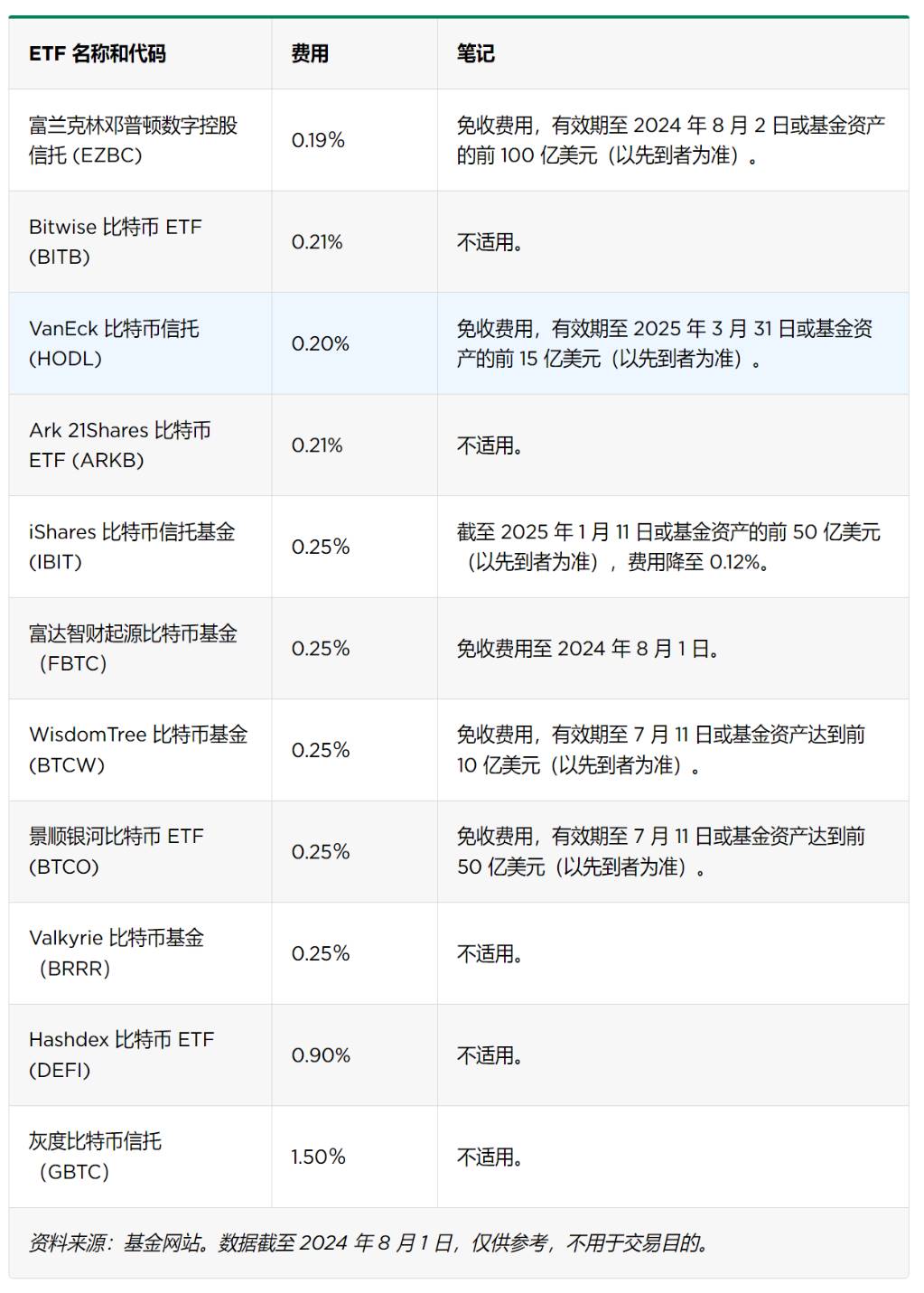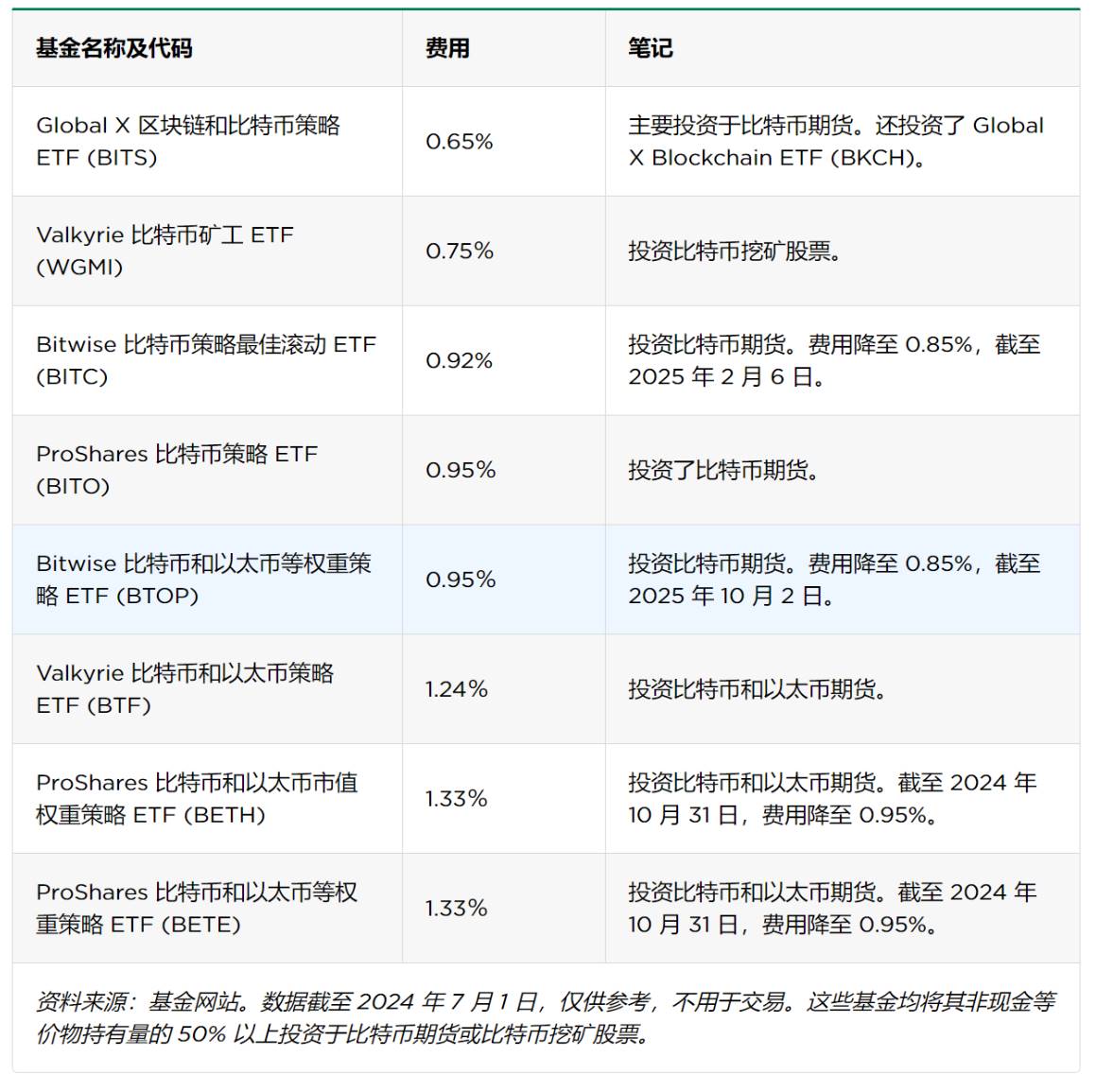By Sam Taube
Translation: Blockchain in Vernacular
On Wednesday, January 10, 2024, the U.S. Securities and Exchange Commission (SEC) approved the first spot Bitcoin ETFs, including ETFs from Fidelity, BlackRock, and Invesco. A total of 11 spot Bitcoin ETFs were approved, 10 of which began trading on Thursday, January 11.
1. What is a spot Bitcoin ETF?
A spot Bitcoin ETF is an exchange-traded fund, a highly liquid fund whose price changes constantly during the trading day like a stock. The fund tracks the price of Bitcoin directly, primarily by holding large amounts of Bitcoin itself.
This is similar to a spot gold ETF, which holds physical gold on behalf of its shareholders.
But wait — aren’t there already Bitcoin ETFs? Yes and no. There have been ETFs and trusts tied to cryptocurrencies, but there has never been a spot Bitcoin ETF on the market until January 2024. These recently approved ETFs are the first cryptocurrency funds to trade on major exchanges and hold Bitcoin directly.
2. Top 11 Spot Bitcoin ETFs by Fees
Here is a list of approved ETFs and their fees, sorted from lowest to highest:

It’s worth noting that while spot Bitcoin ETFs aim to track the price of Bitcoin directly by holding Bitcoin, there’s no guarantee that they’ll deliver exactly the same returns as the cryptocurrency itself.
3. What is Bitcoin Strategy ETF?
Bitcoin strategy ETFs attempt to track the price of Bitcoin indirectly. Many of these ETFs began trading before the first Bitcoin spot ETFs were approved and continue to trade today.
Some funds invest in Bitcoin futures, and some invest in Bitcoin mining stocks. Due to the indirect nature of these investments, the returns of these funds are particularly prone to deviating from the returns of Bitcoin.
Top 8 Bitcoin Strategy ETFs by Fees
Here is a list of Bitcoin strategy ETFs and their fees, ranked from lowest to highest:

4. Bitcoin ETF Price War
In January, ten different potential issuers of bitcoin spot ETFs filed forms with the SEC disclosing the fees they intend to charge. Some of them launched new funds, while others converted existing bitcoin strategy ETFs into bitcoin spot ETFs.
The flurry of SEC filings, which continued until hours before the SEC approval announcement and are likely to continue, reflects an ongoing price war among issuers. Many Bitcoin ETFs, both spot Bitcoin ETFs and Bitcoin strategy ETFs, are slashing fees and offering limited-time promotional fee waivers.
5. Does the spot Bitcoin ETF have custody risks?
Most spot Bitcoin ETFs rely on third-party custodians to physically store their Bitcoin holdings — just as spot gold ETFs typically keep their physical gold holdings in the vaults of third-party custodians.
Eight of the 10 spot Bitcoin ETFs currently trading use Coinbase (COIN) as their Bitcoin custodian. The only exceptions are the Fidelity Wise Origin Bitcoin Fund (FBTC), which uses Fidelity itself as its custodian, and the VanEck Bitcoin Trust (HODL), which uses Gemini.
Coinbase’s dominance in Bitcoin ETF custody raises concerns about custody risk. If Coinbase gets into serious financial trouble in the future (for example, due to a cyberattack, government penalties, or a drop in revenue), will the Bitcoin ETF holdings be safe?
If Coinbase goes bankrupt, there are mechanisms through which the ETF and the investors themselves can recover their holdings, but these mechanisms are not necessarily immediate or automatic. Therefore, custody risk may be something to consider when buying a spot Bitcoin ETF.
6. What do these approvals mean for Bitcoin?
Peter Eberle, chief investment officer at California-based crypto investment firm Castle Funds, said in an email interview that the approval would have a positive impact on bitcoin prices.
“Many investors currently don’t have access to investment opportunities. For example, many people with 401(k), IRA and similar accounts don’t have easy access to Bitcoin. These investors will be able to allocate funds in the future. This will drive demand in the coming years,” Eberle said.
However, Eberle also warned that bullish sentiment may be exaggerated because ETF approval does not necessarily guarantee billions of dollars in inflows on the first trading day.
"Expectations may be too optimistic to have a short-term impact," he said.
7. What do these approvals mean for other crypto investments?
“Crypto tokens are highly correlated. If the price of BTC does move significantly, other tokens will also participate to some extent. This also makes it very likely that we will see an ETH ETF, which could provide a huge boost to ETH,” said Eberle, who uses the ticker “BTC” to refer to Bitcoin and the ticker “ETH” to refer to Ethereum.
Eberle said he believes ETF approvals will likely be limited to bitcoin and ethereum for the time being.
“BTC and ETH ETFs seem like the most likely candidates, as BTC and ETH are already traded as commodities on the Chicago Mercantile Exchange (CME),” he said, referring to the Chicago Mercantile Exchange, a futures trading platform. “Other tokens have greater hurdles to overcome, as the SEC still considers many tokens to be unregistered securities.”






